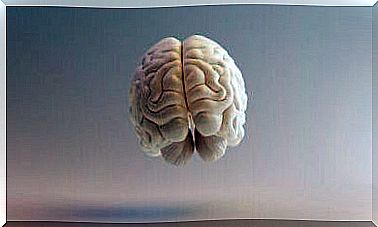Taking Care Of Emotions For A Better Quality Of Life

Taking care of your emotions plays a very important role in well-being, just like taking care of your body. However, we usually only devote time to it when there is something wrong. In the case of an emotional injury, for example.
On the other hand, quality of life – which translates into physical, emotional and social well-being – is intimately linked to health. This is just one of the many reasons to take care of your emotions. It is important to know what their significance is for our health both socially, emotionally and physically. It is also good to measure their positive impact on our lives.
What does taking care of your emotions involve?
It’s actually about connecting to our emotional universe. It is the attention and support we give to our feelings, thoughts and behaviors.

This process requires will on the part of the person who commits to it. In addition, it is also about cherishing those we love around us through the following values:
- Tenderness: this consists of showing affection through details. It can be a caress, a look, a word or even a smile
- Empathy: it resides in the ability of each to put themselves in the other’s shoes in order to perceive their point of view and to understand it
- Respect: this is about taking the other into account while being clear about each other’s limits
- Gratitude: it consists of recognizing what others do for us and what we do for them
- Patience: it is this ability to face certain situations without losing one’s temper
All of these values are also essential when it comes to taking care of yourself emotionally. The idea is actually to recognize the importance of the emotional world. To take this into account when faced with difficult situations and to give yourself a perspective.
All these elements make it possible to take care of oneself on an emotional level because they help to protect oneself but also to listen to one’s emotions and therefore to shape them in order to have a better quality of life. Finally, these values can be applied to oneself but also to others as well as to nature.
In addition, confidence also helps to find its balance. Indeed, being sure to have someone who appreciates us and provides us with emotional well-being makes it possible to facilitate our personal development.
How caring for emotions contributes to our good health
Initially, it is our parents, loved ones or others who take care of us on an emotional level. In fact, our very survival depends on it. Indeed, from birth, the child depends entirely on those around him, both materially and emotionally.
Then, as we grow older, we begin to understand what feelings are and how we should act towards others and towards ourselves. We then become emotional administrators ourselves. From then on, we take care of the emotions of others and also of our own. However, if our emotional world collapses, then we will no longer be able to take care of other people’s.
The benevolence brought to the emotions obviously has an influence on our emotional health but also on our physical health and our social state. In the emotional realm, it gives us security, direction, compassion, and support in understanding the emotional world. In the social domain, it allows us to know how we should treat each other. Finally on the physical level, it allows us to limit the impact that certain diseases can have when they are associated with a negative state of mind.
Attachment theory
Psychology and psychoanalysis very quickly put forward the fact that emotional failures have harmful effects on the emotional development of the child in particular. For example, in such situations, the child will often be more able to develop toxic social relationships.
As Bion, Anna Freud, and Winnicott did, throughout the twentieth century most studies of affective relationships have been based on psychological issues related to identity construction. Around 1969, however, John Bowlby went further. He is the founder of attachment theory. He thus suggested that our tendency to establish close relationships with others is in fact essential to our survival.
Today, thanks to advances in brain imaging, we can now visualize the effects of these concepts on our brains. This is what Nafissa Ghanem suggests in her article “The impact of affective deficiencies seen by neuroscience”. She then explains to us that thanks to magnetic resonance imaging, we can understand how the mechanisms of emotional deprivation, in other words the lack of attachment, affect our brain.
These new neurophysiological contributions confirm that it is essential to take care of the emotions of the child during his development. Moreover, it suggests that the state of psychological maturity that an individual will adopt throughout his life is greatly conditioned by the social, emotional and cultural environment during his childhood.

The interest of emotional well-being
Taking care of our emotions effectively gives us the possibility of having a better quality of life. Let’s take a closer look at some of these benefits:
- It helps us understand the universe of emotions
- We are better able to improve our communication
- We feel more secure
- It contributes to personal development
- We thus create better relationships with those around us but also with ourselves.
- This creates conditions conducive to learning
- We manage our emotions more effectively
- Finally, it allows us to strengthen our knowledge of ourselves
Emotional care opens the door to the world of emotions. It gives us the opportunity to understand them better little by little and to develop ourselves to establish healthier relationships with others, with ourselves and with nature.
Our personal development is made possible through assertiveness. We can thus say that we are essential to our own development. Although our behavior depends in large part on the emotional care we received in the first few years of our life, let us not forget that the experiences we accumulate also shape us.










